The tuberous roots have alterative, antacid, antiinflammatory, antispasmodic, antitumor, aperient, aphrodisiac, appetiser, astringent, bitter, cooling, demulcent, diaphoretic, digestive, diuretic, emollient, galactagogue, laxative, nervine, nutritive, oleaginous, refrigerant, rejuvenative, sedative, stomachic, styptic and tonic properties. Useful in tumors, inflammations, diseases of blood and eye, throat complaints, tuberculosis, leprosy, epilepsy, night blindness and kidney troubles. It is proved that it increases milk production in lactating women. Also recommended for gout, dropsy and rheumatism.
The tuberous roots have alterative, antacid, antiinflammatory, antispasmodic, antitumor, aperient, aphrodisiac, appetiser, astringent, bitter, cooling, demulcent, diaphoretic, digestive, diuretic, emollient, galactagogue, laxative, nervine, nutritive, oleaginous, refrigerant, rejuvenative, sedative, stomachic, styptic and tonic properties. Useful in tumors, inflammations, diseases of blood and eye, throat complaints, tuberculosis, leprosy, epilepsy, night blindness and kidney troubles. It is proved that it increases milk production in lactating women. Also recommended for gout, dropsy and rheumatism.
Asparagus is perhaps best known as a female rejuvenative. According to Ayurvedic texts, Shatavari means “one who possesses hundred husbands”. The root contains compounds called steroidal glycosides (asparagoside) that directly affect hormone production and may very well influence emotions. It is the most important herb in Ayurvedic medicine for dealing with problems connected with women’s fertility. It is useful in infertility, decreased libido, threatened miscarriage, menopause, leucorrhoea, menstrual cramps and has the ability to balance pH in the cervical area. Dry membranes, such as those on the vaginal wall, are also brought into balance through the herbs demulcent action. It tones, cleanses, nourishes, and strengthens the female reproductive organs and so is traditionally used to control the symptoms of PMS, including breast tenderness and abdominal bloating, amenorrhoea, dysmenorrhoea, leucorrhoea and menopause. It is also useful in pelvic inflammatory disease like endometriosis. It also supports deeper tissue and build blood and so it helps to remove infertility, prepare the womb for conception, prevent miscarriage and acts as a post-partum tonic where it helps to increase lactation and normalize the uterus and the changing hormones. So many of these benefits abound because Asparagus contains phytoestrogens, hormones that normalize estrogen levels and also play an important role in preserving women’s long term health. Clinical studies suggest that plant estrogen’s are better than drugs for hormone balancing since they do not produce negative side effects such as uterine cancer. This gentle herb will promote an easier balanced life.
Men may benefit from the herb as well in the treatment of impotence, spermatorrhoea, and general and sexual debility. In addition to it’s applications for reproductive organs, Asparagus is also quite effective for stomach ulcers, hyperacidity and diarrhoea. Dry and irritated membranes in the upper respiratory tract are soothed by this herb making it useful in cases of bronchitis and chronic fevers. It is believed to bring into balance all of the body’s fluids.
Recommended Dosage
3 to 8 g powder of dried roots.
Contraindication
Do not take this herb when kidneys are inflamed, as it increases the rate of urinary production. Do not use if you have oedema (swelling) due to impaired kidney or heart function. In rares cases, may cause dermatitis. .
English name:
- Asparagus
Latin names:
- Asparagus officinalis (native to Europe, Western Asia, and Northern Africa).
- Asparagus racemosus (native to India, the Himalayas, and Sri Lanka).
- Shatmuli, meaning “a plant with 100 roots.” It is also called the Queen of Herbs in ayurvedic medicine.
Asparagus racemosus (or shatavari) has finger-shaped roots and is used extensively in ayurvedic medicine. Asparagus officinalis is cultivated for its edible shoots.
White asparagus is cultivated by covering the shoots with the soil after they have sprouted. This prevents photosynthesis, resulting in the white color.
Nutrition Facts
- Asparagus is a low calorie vegetable with just 20 calories per 100 grams. It has almost no fat and is free of cholesterol. The low calorie content makes it a negative calorie vegetable; you burn more calories digesting it than you gained from consuming it.
- Asparagus contains the carbohydrate inulin which has a major health benefits.
- It is a rich source of folates (13% DV in 100 grams), a vital nutrient for a growing baby.
- It contains all the important B-complex vitamins, including niacin, pantothenic acid, pyridoxine, riboflavin, and thiamine. These are needed for many metabolic and enzymatic processes.
- Asparagus has rich levels of the antioxidant Vitamin A (25% RDA/100 grams) and moderate levels of vitamins C & E.
- Vitamin K is found in very good quantities (35% RDA/100 grams). This nutrient is especially helpful in ensuring brain and bone health and ensuring normal blood clotting.
- Various minerals like calcium, manganese, phosphorus, selenium, and zinc are found in fair amounts, while copper and iron are in good amounts.
- Asparagus contains about 4% potassium and almost no sodium, which makes it good for those with hypertension.
|
Asparagus (A. officinalis), raw,
|
||
|---|---|---|
|
Nutrition value per 100 grams/ORAC value 2150
|
||
|
Nutrient
|
Nutrient Value
|
Percentage of RDA
|
|
Calories
|
20 Kcal
|
1%
|
|
Carbohydrates
|
3.38 g
|
2.50%
|
|
Protein
|
2.20 g
|
4%
|
|
Total Fat
|
0.12 g
|
0.50%
|
|
Cholesterol
|
0 mg
|
0%
|
|
Dietary Fiber
|
2.1 g
|
5.50%
|
|
Vitamins
|
||
|
Folates
|
52 mcg
|
13%
|
|
Niacin
|
0.978 mg
|
6%
|
|
Pantothenic acid
|
0.274 mg
|
5%
|
|
Pyridoxine
|
0.091 mg
|
7%
|
|
Riboflavin
|
0.141 mg
|
11%
|
|
Thiamin
|
0.143 mg
|
12%
|
|
Vitamin C
|
5.6 mg
|
9%
|
|
Vitamin A
|
756 IU
|
25%
|
|
Vitamin E
|
1.13 mg
|
7.50%
|
|
Vitamin K
|
41.6 mcg
|
35%
|
|
Electrolytes
|
||
|
Sodium
|
2 mg
|
<1%
|
|
Potassium
|
202 mg
|
4%
|
|
Minerals
|
||
|
Calcium
|
24 mg
|
2.50%
|
|
Copper
|
0.189 mg
|
21%
|
|
Iron
|
1.14 mg
|
14%
|
|
Magnesium
|
14 mg
|
1%
|
|
Manganese
|
0.158 mg
|
7%
|
|
Phosphorus
|
52 mg
|
7.50%
|
|
Selenium
|
2.3 mcg
|
4%
|
|
Zinc
|
0.54 mg
|
5%
|
|
Phyto-nutrients
|
||
|
Beta Carotene
|
449 mcg
|
|
|
Alpha Carotene
|
9 mcg
|
|
|
Lutein-zeaxanthin
|
710 mcg
|
Asparagus Is Highly Perishable!
Asparagus is more perishable than other vegetables and begins to lose its nutrients after it is picked. Use it the same day you pick or purchase it. You can keep it fresh by wrapping the ends in damp paper or cloth towels and storing in the refrigerator.
Health Benefits
These properties give asparagus a wide range of health benefits.
Cancer
The health benefits of asparagus has largely been attributed to the saponins in the roots. Asparagus officinalis has saponins in the shoots as well. Saponins have anti-inflammatory properties. Research has shown that the phytochemical, or antioxidant, properties in asparagus prevent cell damage that precedes cancer.
Asparagus contains a unique carbohydrate called inulin that does not get digested in the anterior part of the intestine, but travels to the large intestine where it is broken down by the bacteria residing there (the Bifidibacteria and Lactobacilli). These bacteria use inulin as food to thrive and multiply, thereby lowering the risk of colon cancer and allergies, and increasing the absorption of nutrients.
Alzheimer’s disease
Studies show that high levels of Vitamin E, as are present in asparagus, help prevent the brain changes that precede Alzheimer’s disease.
Heart Disease
Its anti-inflammatory properties, and also its various B-complex vitamins (especially choline, biotin, and pantothenic acid) play a key role in regulating blood sugar levels and keeping amino acid homocysteine levels low. This reduces the risk of heart disease, lowering blood pressure, and reducing risk of heart attack and stroke. It also helps regulate blood fat and cholesterol levels.
Digestion
Research into the role of prebiotics in digestive health show that asparagus, as a high-fiber vegetable, aids in digestion and helps boost the body’s immune system. The unique carbohydrate inulin, and the dietary fiber (which is a combination of insoluble and soluble fiber), relieves constipation, dyspepsia, ulcers, diarrhea, dysentery, and colic, and improves digestion by increasing the levels of the enzymes amylase and lipase, which digest carbohydrates and fat, respectively.
Blood Sugar
The anti-inflammatory and antioxidant properties also translate into the lowering of blood sugar levels, with the dietary fiber also pitching in. This especially reduces risk of type 2 diabetes.
Anxiety
Studies in China have shown that asparagus extract is beneficial in the treatment of anxiety, according to Harvard Medical School.
Health Benefits in Ayurvedic Medicin
The list of health benefits of asparagus is long and very impressive. It is used as a female reproductive tonic in Ayurveda, but its benefits go far beyond this.
According to ayurveda, the root (the most used part of the plant) has the following properties/benefits:
- Antiseptic
- Antidiarrheal and antidystentric
- Diuretic
- Galactogogue (increases milk output in breastfeeding women)
- Antispasmodic
- Anti-inflammatory
- Aphrodisiac
- Demulcent (soothing pain and inflammations)
- Nutritive (nourishing)
- Refrigerant (cooling effect, pitta pacifying effect)
- Tonic
- Antitussive (relieves cough)
- Antioxytocic (prevents stimulation of the uterus muscles)
- Antioxidant
- Immunomodulator
- Adaptogen (metabolism regulator, helping the body to adapt to environment factors easily)
Asparagus and Urine Odor
Many people report a strong odor in their urine after consuming asparagus, while many others have no such issues. No simple or single explanation has been forthcoming on this by researchers as there are 21 different substances that are believed to cause this odor.
Also, many people do not experience this smell, either due the different ways their bodies metabolize asparagus, or because they are not being able to perceive this odor. Not enough research has been done on the connection between asparagus consumption, urine odor, and its risk to health.
Therefore, it would be safe to assume that, in view of the above facts, to consume or not consume asparagus is a personal choice. Of course, by not consuming it, one is bound to miss out on its various health benefits.
Medicinal Value of Shatavari/Satavar/Shatamull (Asparagus Racemosus)
Precautions
Asparagus contains purines, so people who suffer from gout or kidney stones, or even those who are susceptible to purine-related problems, should avoid or limit their consumption of asparagus. An excess of purines can cause excess of uric acid in the body, and lead to health issues in such individuals.
Disclaimer: The information provided in this article is not a substitute for professional medical advice. Please consult your physician, or health care provider before taking any home remedies, supplements, or starting a new health regimen.

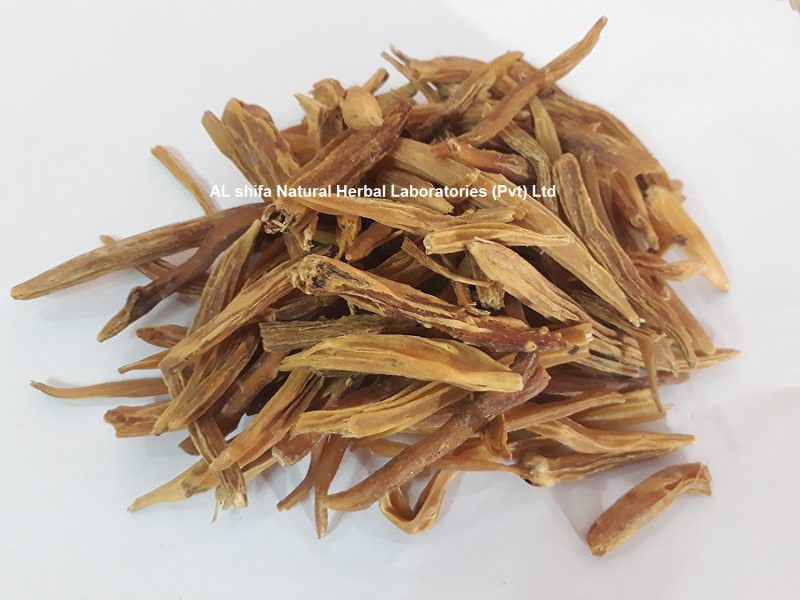
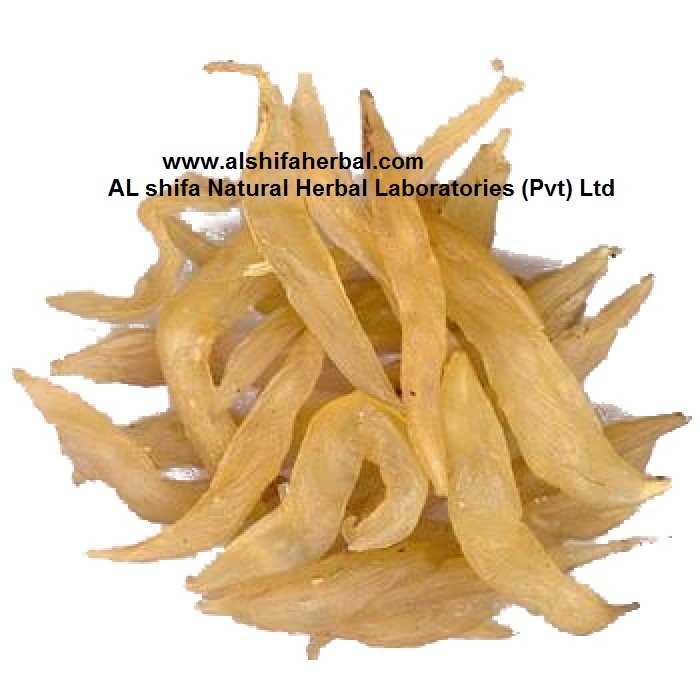

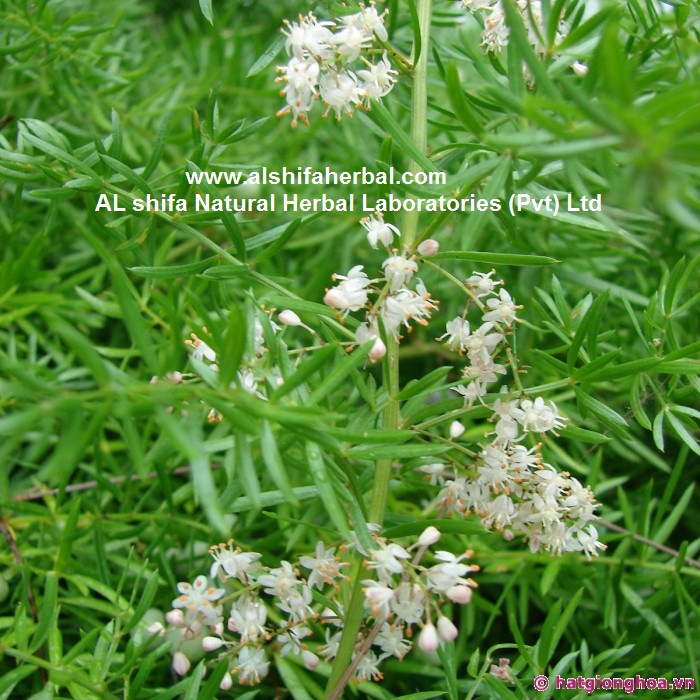
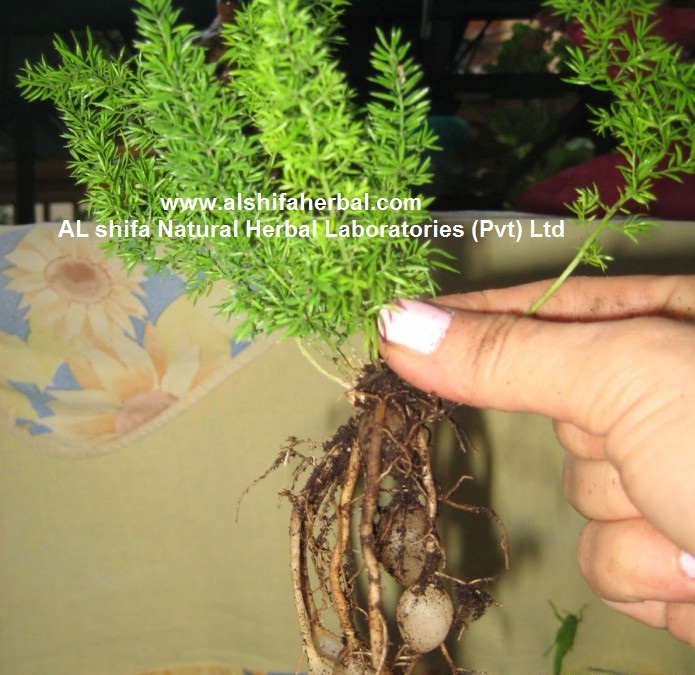
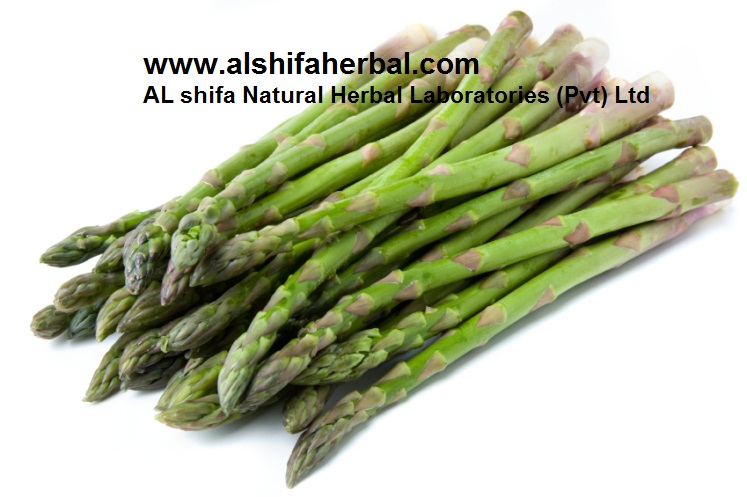
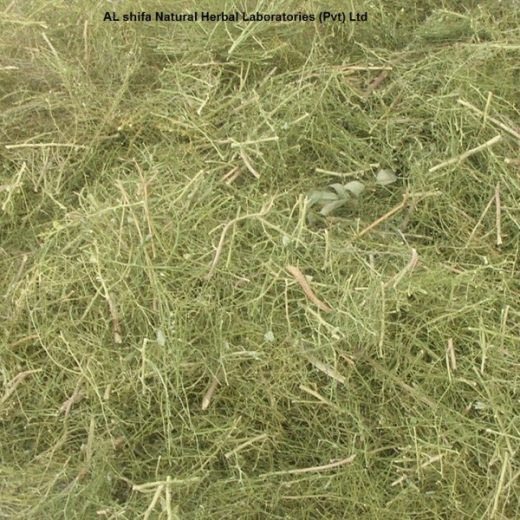
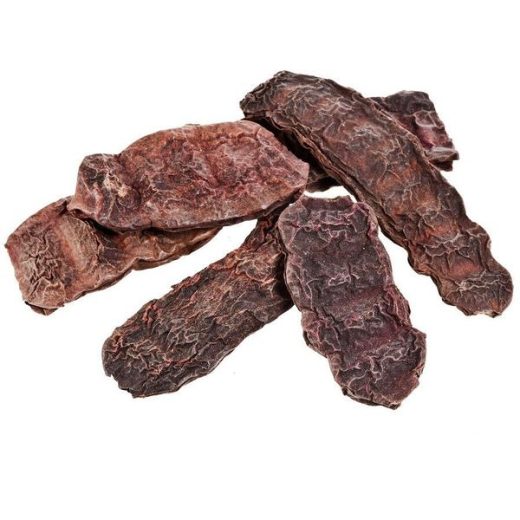
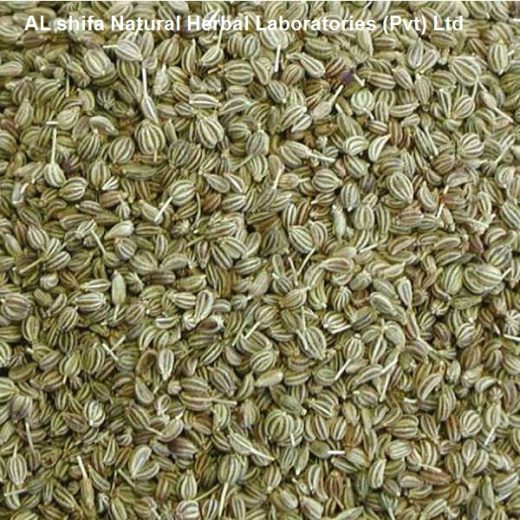



Reviews
There are no reviews yet.